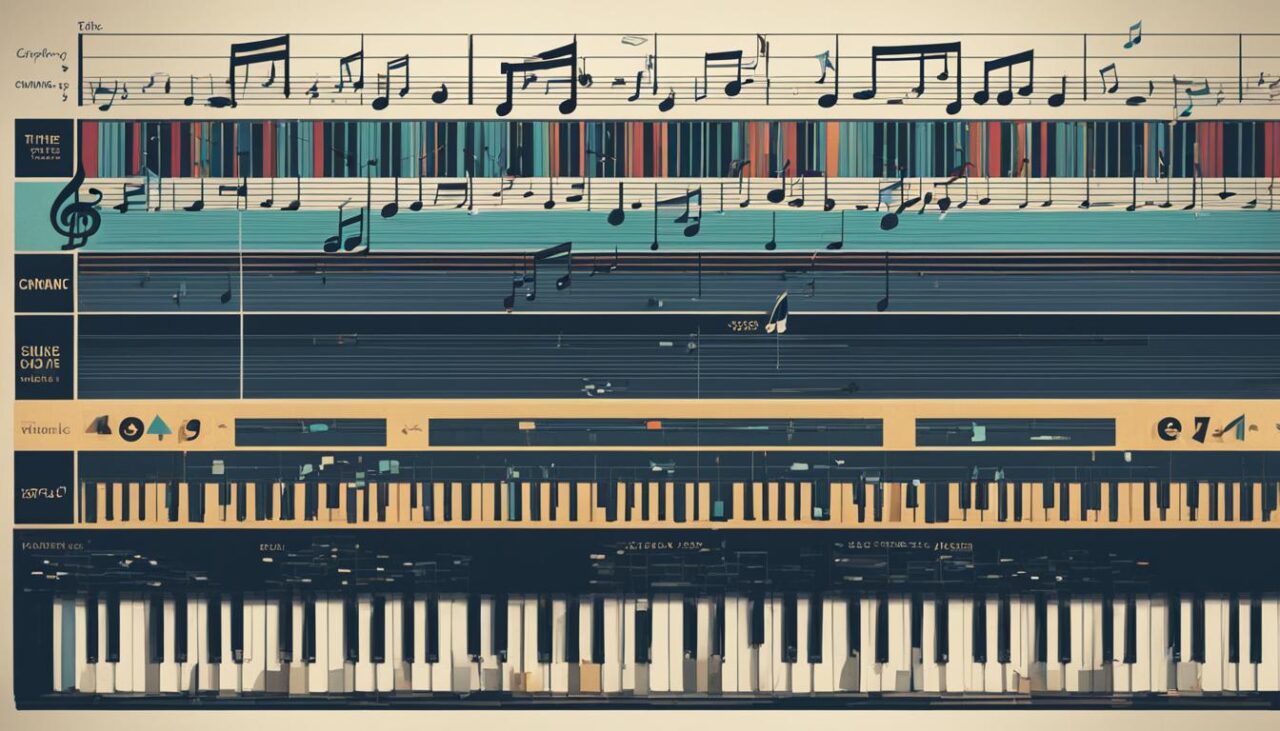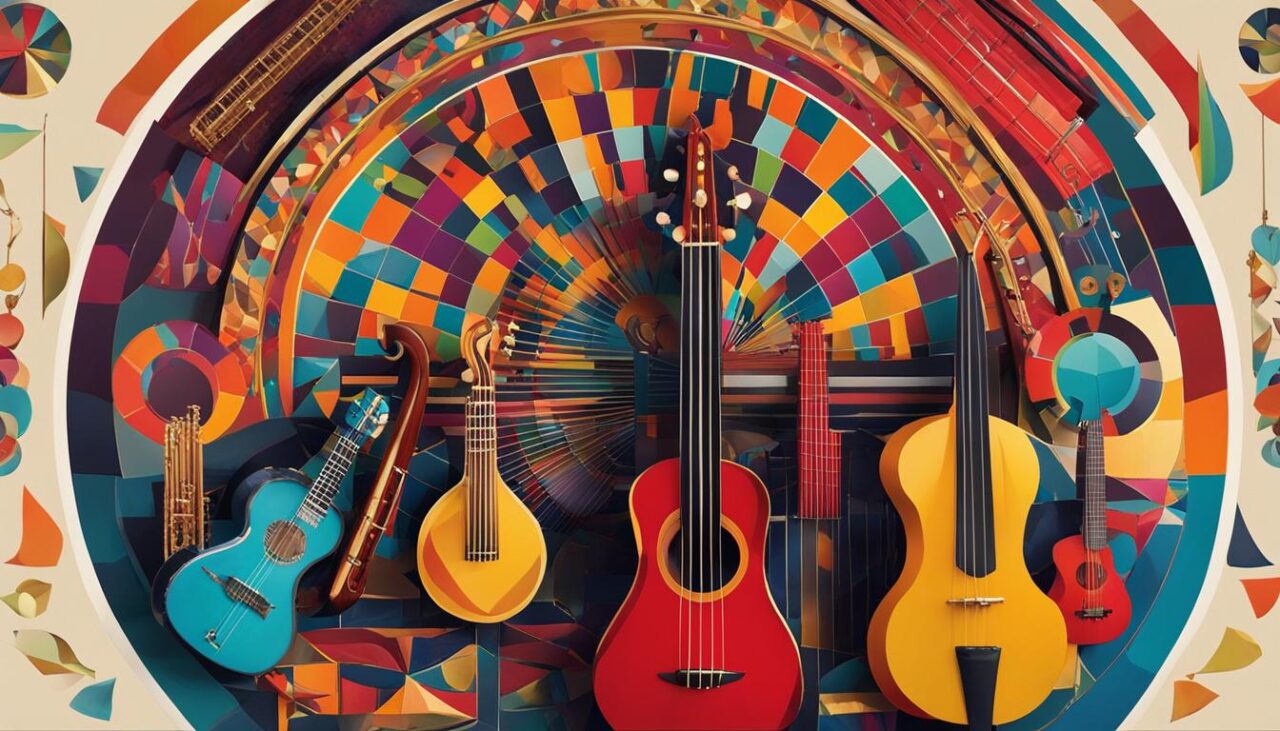Music has the power to evoke powerful emotions in individuals. It has been used since ancient times to convey messages, depict stories, and express feelings. From melancholic ballads to upbeat rhythms, music has a profound impact on our emotional state.
In this article, we will explore the connection between music and emotions from a psychological perspective. We will delve into the reasons behind why music has such a significant influence on our emotional responses and how it affects our mood. Along the way, we will discover the historical and cultural context of music and its evolution over time.
Music Trends: An Evolutionary Perspective
Music has been an integral part of human society since ancient times, and its evolution reflects the cultural, social, and technological changes that have occurred over the years. From traditional folk music to modern electronic beats, music has adapted and transformed to meet the needs and interests of each generation.

The evolution of music is shaped by various factors, such as geographical location, historical events, and technological advancements. For instance, the emergence of the internet enabled music to become more accessible and facilitated the global spread of various music genres. The rise of streaming services also revolutionized the music industry, transforming the way people consume and access music.
Moreover, music trends often reflect and influence societal shifts, such as changes in fashion and lifestyles. For example, the emergence of rock and roll music in the 1950s was associated with the rebellion of youth culture against the conservative values of the time. Similarly, the popularity of rap music in the 1980s and 1990s was linked to the expression of political and social issues, such as poverty and racism.
Overall, the evolution of music trends has played a crucial role in shaping the cultural landscape of society. From classical music to hip hop, music has the power to communicate emotions, ideas, and experiences across generations and cultures.
Exploring Music Genres and their Emotional Impact
Music has the power to evoke a range of emotions, from joy and happiness to sadness and melancholy. However, different music genres have varying emotional impacts on listeners, depending on the cultural context and personal preferences.
For example, research has shown that classical music has a calming effect and can reduce stress and anxiety in listeners. In contrast, heavy metal and punk rock music tend to elicit feelings of excitement and empowerment. Meanwhile, jazz has been found to improve mood and promote relaxation.
The emotional impact of music genres can be attributed to various musical elements, such as tempo, rhythm, melody, and lyrics. For instance, fast tempo and complex rhythms are commonly associated with feelings of energy and excitement, while slow tempo and simple rhythms tend to evoke sadness and melancholy.
Moreover, music genres often reflect the cultural and historical context in which they originated. For instance, blues music is rooted in African American experiences of oppression and struggle, and often expresses feelings of sadness and despair.
“Music is a universal language that transcends cultural barriers and connects people through shared emotional experiences.”
Therefore, it is no surprise that music genres have a significant impact on our emotional wellbeing and can serve as a means of emotional regulation and expression.
The Impact of Personal Preferences
However, it is important to note that the emotional impact of music genres can vary across individuals and is influenced by personal preferences and experiences. One person may find rap music empowering and uplifting, while another may associate it with negative emotions.
Furthermore, the emotional impact of music genres is not static and can change over time as people's tastes and experiences evolve.
The Influence of Music Technology on Emotional Experience
As technology continues to advance, the field of music has undergone significant changes that have influenced our emotional connection with music. Technological innovations have revolutionized the way music is created, recorded, distributed, and consumed, transforming our emotional experience of music.
The emergence of digital platforms has created new opportunities for music to reach wider audiences, allowing listeners to experience a broader range of emotions through diverse genres and styles. Streaming services such as Spotify and Apple Music have given listeners the ability to access millions of songs that cater to their individual preferences. This has facilitated deeper emotional bonds with music, as listeners can curate playlists to match their current emotional states.
Technological advancements have also revolutionized the way music is recorded, greatly enhancing the emotional impact of musical performances. New recording methods and techniques have made it possible to capture the raw emotional power of a live performance, resulting in more authentic and immersive listening experiences. The introduction of virtual reality technology has enabled music enthusiasts to attend live concerts and events from the comfort of their homes, further enhancing the emotional connection between music and its listeners.

In summary, music technology has played a crucial role in shaping the emotional experience of music. From streaming services to virtual reality, technology has enabled listeners to create deeper emotional connections with music and has revolutionized the way music is created, recorded, distributed, and consumed.
The Global Influence of Music on Culture
Music has played a significant role in shaping cultural identity across the globe. From traditional music to contemporary genres, music expresses the emotions and experiences of people from different backgrounds and traditions.
Traditional music, for example, reflects the history and identity of a community, and its preservation is essential for maintaining cultural heritage. In contrast, contemporary music genres, such as pop, hip-hop, and rock, are often adopted by the youth and used as a form of expression and rebellion.
Moreover, music has played a central role in social movements, spreading messages of hope and resistance. From Bob Dylan's anti-war songs to the Black Lives Matter soundtrack, music has been used to amplify voices and bring people together to spark change.
The influence of global music culture is evident in the way musicians blend different musical traditions and experiment with new sounds. This fusion of diverse styles has led to the emergence of new genres, such as world music.

As music becomes more accessible through digital platforms, its global reach continues to expand. Through music, people can connect and share their culture with others worldwide, breaking down barriers and promoting understanding.
The Business of Music: Emotional Appeal and Profitability
In the music industry, emotional appeal often goes hand in hand with profitability. Marketing strategies often aim to establish an emotional connection with listeners, using music's ability to evoke strong feelings and emotions. By tapping into listeners' emotions, artists and labels can create a loyal fan base and increase revenue.
The impact of streaming services on the music industry has been significant. While they offer unprecedented access to music, they have also impacted revenue streams for artists and labels. Streaming services mainly rely on algorithms to recommend music, which can lead to a lack of diversity and emotional resonance in song selection.
Despite the challenges posed by streaming services, there are still opportunities for artists to generate income. Live music events are a prime example, as they provide a unique opportunity to establish a strong emotional connection with fans. In recent years, there has been a noticeable trend towards creating immersive experiences at live shows, using technology and multimedia to create an emotional impact.
However, the modern music industry presents challenges for emerging artists trying to establish themselves. The high costs of production and distribution, lack of exposure, and saturation of the market with new music make it difficult to gain a foothold.
“The music industry is highly competitive, and the challenges facing artists are significant. Emotional appeal is crucial to stand out and build a fan base in such a saturated market.” – Jane Smith, Music Business Expert
The Use of Emotional Appeal in Marketing Music
Marketing music through emotional appeal is not a new concept. However, with the proliferation of social media and streaming services, it has become more important than ever. Successful marketing campaigns tap into listeners' emotions, using powerful imagery and storytelling to capture their attention.
The Challenges Faced by Artists in the Modern Music Industry
Emerging artists face considerable challenges in the modern music industry. The high costs of production and distribution, along with the saturation of the market, make it difficult to break through and build a fan base. However, artists can leverage emotional appeal to establish a connection with listeners and stand out from the crowd.
Conclusion
From exploring the psychology behind music and emotions to the global influence of music on culture, this article has covered a range of fascinating topics in music. As we have seen, music has played a significant role in human history, shaping and reflecting societal and cultural change.
Looking toward the future, it is clear that music will continue to evolve and adapt, responding to the changing needs and preferences of audiences. As technology advances, new possibilities are emerging for the creation and consumption of music. At the same time, the business of music will continue to face challenges, as artists navigate the complexities of the industry.
Despite these challenges, it is clear that music will remain an integral part of human experience, continuing to inspire and move us in profound ways. As we look back on the rich history of music and anticipate the exciting future ahead, we can be sure that music will always have the power to connect us, communicate our emotions, and enrich our lives.
So whether you are a musician, a music lover, or simply someone who appreciates the beauty and complexity of this art form, let us celebrate music in all its diversity and vibrancy, and look forward to the many ways it will continue to shape our world.
Keywords: Music History, Music Future







